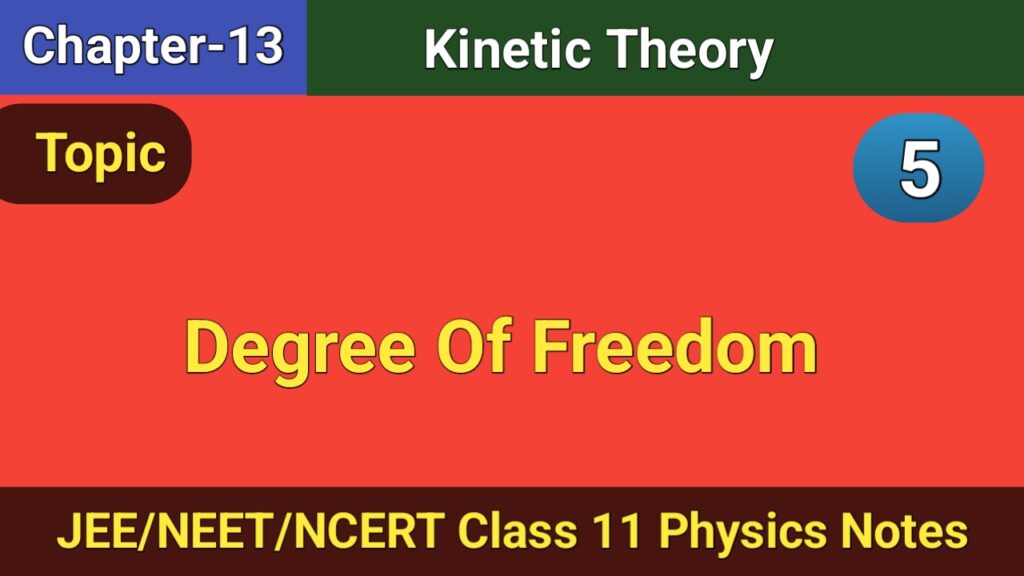Degree Of Freedom
The total number of co-ordinate or independent quantities required to describe completely the position and configuration of a dynamic system is known as number of degree of freedom of the system. It is represented by f and expressed as (I) In case of monoatomic gas, such a helium, neon, organ, kripton, etc have translational degree […]





